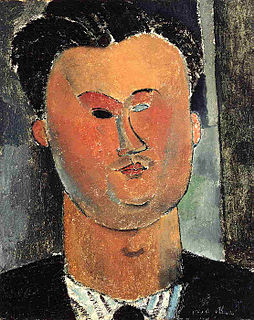A Quote by Gaston Bachelard
The poetic image […] is not an echo of the past. On the contrary: through the brilliance of any image, the distant past resounds with echoes.
Related Quotes
The image is a pure creation of the mind. It cannot be born from a comparison but from a juxtaposition of two more or less distant realities. The more the relationship between the two juxtaposed realities is distant and true, the stronger the image will be - the greater its emotional power and poetic reality..
There are a variety of reasons. Not all Western leaders are equal. We have to make a certain separation from naïve Americans and Europeans. These are two different categories. For the Europeans, it affects the image of the "New Europe." The false image of Europe is that it is peaceful, separate from the past. Now the image of the New Europe is a radically false image.
The image can only be studied through the image, by dreaming images as they gather in reverie. It is a non-sense to claim to study imagination objectively since one really receives the image only if he admires it. Already in comparing one image to another, one runs the risk of losing participation in its individuality.
Besides, whoever keeps the future in front of him and the past at his back is doing something else that's hard to imagine. For the image implies that events somehow already exist in the future, reach the present at a determined moment, and finally come to rest in the past. But nothing exists in the future; it is empty; one might die at any minute. Therefore such a person has his face toward the void, whereas it is the past behind him that is visible, stored in the memory.
Polaroid material has the most beautiful quality - the colors on one side, but then the magic moment in witnessing the image to appear. The time stands still and the act of watching the image develop can be shared with the people around you. In the fast world of today it's nice to slow down for a moment. At the same time Polaroid slows time, it also captures a moment which becomes the past so instantly that the decay of time is even more apparent - it gives the image a certain sentimentality or melancholy.






































